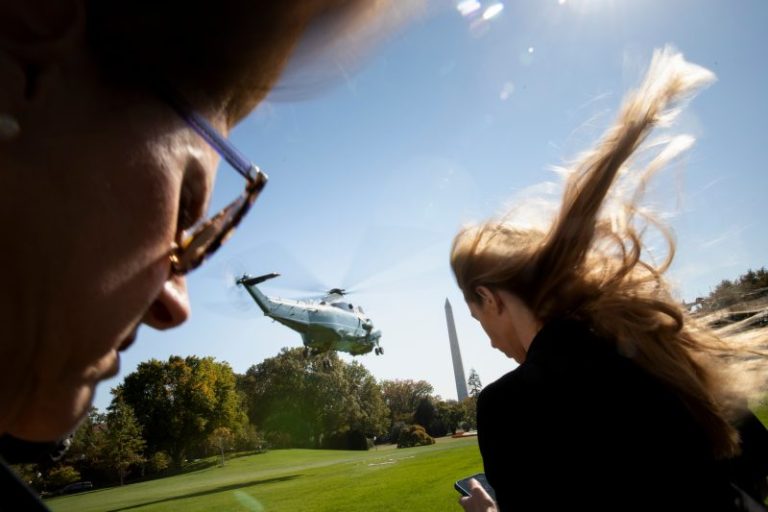In the summer of 2017, after he had been in office for only a few months, President Donald Trump reportedly told members at his private golf club in New Jersey why he spent as little time at the White House as possible.
“That White House is a real dump,” he told members at Bedminster according to Golf Magazine, comments that the White House denied at the time.
This fit with Trump’s image as the ultimate D.C. outsider. The guy doesn’t even kowtow to Big Tradition!
But it might also simply reflect the fact that living in the White House isn’t all that fun. During a town hall soon after his own inauguration, President Biden said that he found the situation uncomfortable.
“I was raised in a way that you didn’t look for anybody to wait on you,” he told CNN’s Anderson Cooper.
In neither case, though, do we need to take either president’s word for their discontent. Both Trump and Biden spent all or part of at least 250 days at their own properties or on vacation in the first 853 days of their presidencies — that is, through May 22, 2019 or May 22, 2023.
When Trump established this pattern during his presidency, it spurred a lot of media attention, including from myself. His defenders and the current president’s critics have regularly pointed to Biden’s own time away from the White House as an exoneration of Trump’s trips or an indictment of the media’s newfound lack of interest — or both. But there is an obvious, important difference between the two situations.
First, the numbers. By my tally of Biden’s presidency, using White House pool reports collected by Factba.se, Biden has spent all or part of 256 days of his presidency either on vacation or at one of his homes in Delaware. He has all or part of 75 days at Camp David (the unofficial designated getaway for presidents) and 68 days overseas.
By contrast, Trump had spent all or part of 250 days at a property he owned by that point in his presidency. He had spent all or part of 18 days at Camp David and 45 days on foreign trips.
You can get a sense for how frequently each president left the White House below. This excludes trips undertaken as part of each president’s official duties, save the foreign trips. Contrast the regularity of light blue and red blocks — days in which Biden or Trump were stationed at the White House, respectively — with the dark blue and red ones.
There are four periods in Biden’s tenure that are marked with an overlaid white line. Those are periods when Biden was on vacation somewhere that wasn’t a property he owned, like his trip to the Virgin Islands at the end of last year.
Those trips were ones in which Biden stayed at the homes of donors. His Virgin Islands trip was to a home owned by donors Bill and Connie Neville. Twice, he’s stayed at a Martha’s Vineyard compound owned by billionaire David Rubenstein.
This is not an ideal situation, certainly, the president of the United States receiving favors from wealthy allies. But these trips make up only 24 of the 250-plus days Biden has been away from the White House.
By contrast, Trump’s 250 days spent in full or in part at properties he owned were almost all at clubs and facilities where he would be interacting with customers for his private business. His interactions with Mar-a-Lago customers in that facility’s dining room became the stuff of presidential legend. He’d often dip out to the Trump Organization golf course in Virginia on the weekend, playing rounds of golf with club members or other individuals whose identities weren’t revealed to the public.
Biden has at times played host to others at his Delaware homes, generally members of his family. A call for Biden to release information about guests in January revealed that the Secret Service has only informal records. The Secret Service had a similar response when asked about visitors to Trump’s members-only businesses during his presidency.
This, in a nutshell, is the difference. Trump’s trips out of the White House were generally to places where his presence was a direct asset to his business and therefore his personal income. His interactions with club members and their guests were linked to various efforts to influence public policy. Not to mention that some guests had front-row seats for history.
Golf Magazine’s 2017 revelation about Trump’s view of the White House explained how the president happened to let his disparagement slip.
“Trump is often at his most unguarded among the people who pay for their proximity to him,” the magazine wrote.
This is the environment in which Trump had spent most of his 250 days at his own properties by May 2019.

